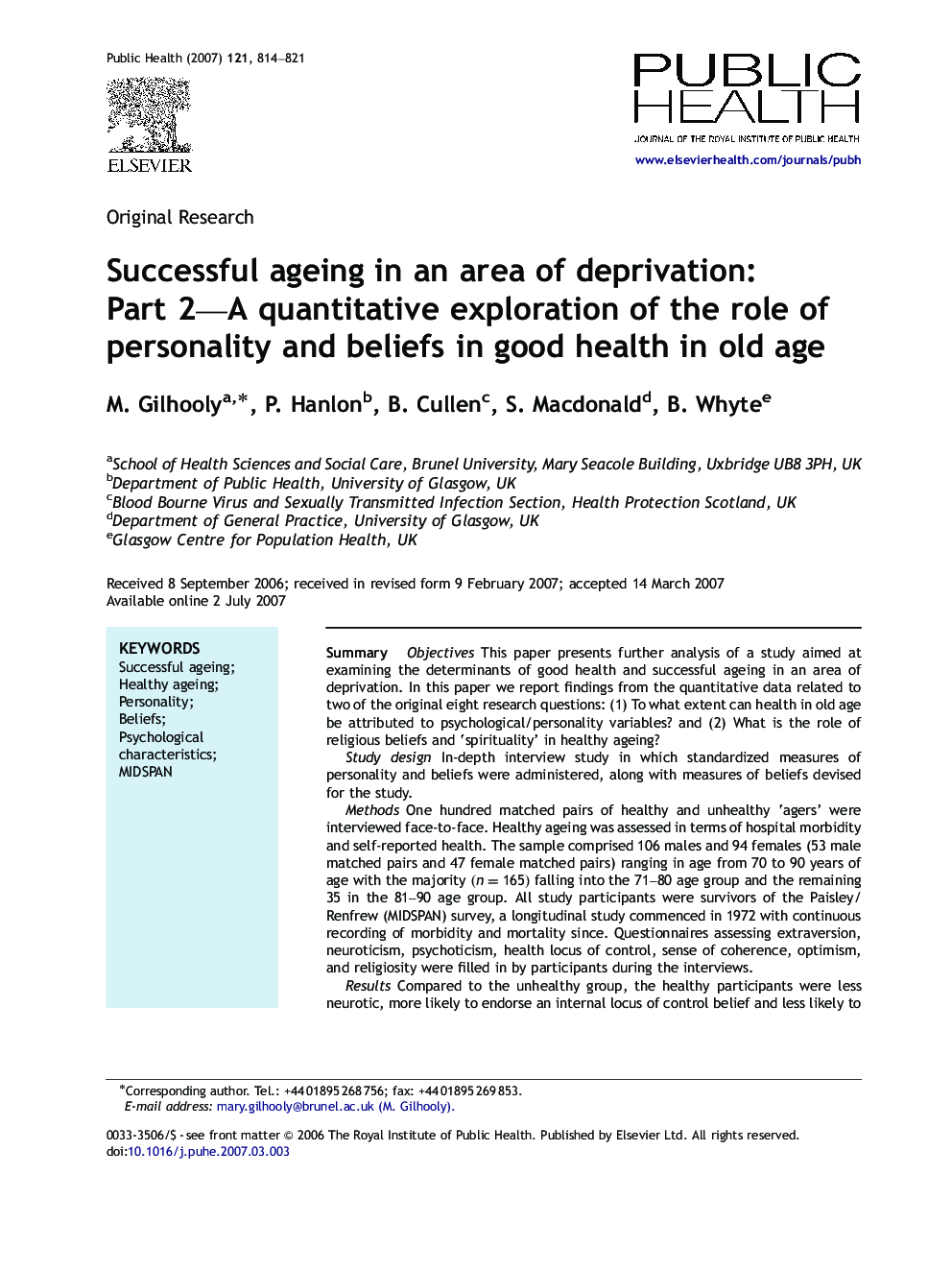| کد مقاله | کد نشریه | سال انتشار | مقاله انگلیسی | نسخه تمام متن |
|---|---|---|---|---|
| 1089200 | 951646 | 2007 | 8 صفحه PDF | دانلود رایگان |

SummaryObjectives This paper presents further analysis of a study aimed at examining the determinants of good health and successful ageing in an area of deprivation. In this paper we report findings from the quantitative data related to two of the original eight research questions: (1) To what extent can health in old age be attributed to psychological/personality variables? and (2) What is the role of religious beliefs and ‘spirituality’ in healthy ageing?Study design In-depth interview study in which standardized measures of personality and beliefs were administered, along with measures of beliefs devised for the study.Methods One hundred matched pairs of healthy and unhealthy ‘agers’ were interviewed face-to-face. Healthy ageing was assessed in terms of hospital morbidity and self-reported health. The sample comprised 106 males and 94 females (53 male matched pairs and 47 female matched pairs) ranging in age from 70 to 90 years of age with the majority (n=165)(n=165) falling into the 71–80 age group and the remaining 35 in the 81–90 age group. All study participants were survivors of the Paisley/Renfrew (MIDSPAN) survey, a longitudinal study commenced in 1972 with continuous recording of morbidity and mortality since. Questionnaires assessing extraversion, neuroticism, psychoticism, health locus of control, sense of coherence, optimism, and religiosity were filled in by participants during the interviews.Results Compared to the unhealthy group, the healthy participants were less neurotic, more likely to endorse an internal locus of control belief and less likely to endorse a powerful others locus of control belief, and to report a greater sense of coherence. The unhealthy group scored higher on the religiosity/spirituality measure devised for this study.Conclusions The findings are interesting in that, although they cannot address the issue of cause and effect, the very fact that the personality traits measured in this study were linked to health status in old age, further strengthens the argument that in general practice and hospital settings, an understanding of personality aids practitioners in dealing with patients. Finally, with the growing body of evidence that personality traits have a high degree of heritability, the routine gathering of information on personality traits would aid epidemiologists in their understanding of the determinants of healthy and successful ageing.
Journal: Public Health - Volume 121, Issue 11, November 2007, Pages 814–821